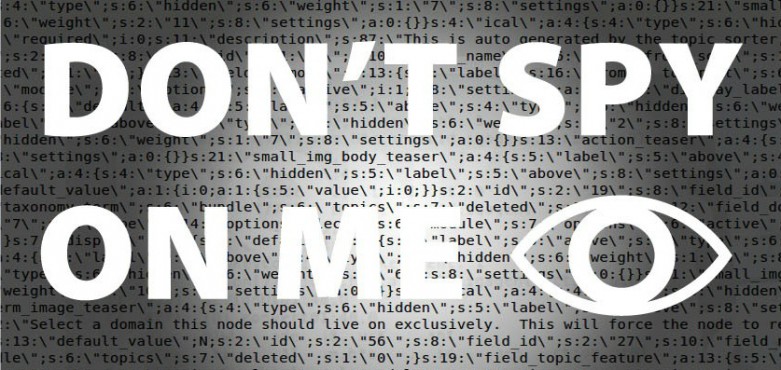
Spyfall
Late last week the Guardian released a story detailing how the National Security Administration (NSA) has been collecting the phone records of millions of Verizon customers daily. I won’t go into a ton of detail, except to say, the story details how a secret court order requires Verizon to hand over the communication records of millions of US citizens — even if they are not suspected of any wrongdoing.
In response, the Center for Media Justice and members of the Media Action Grassroots Network, joined a newly formed coalition called Stopwatching.Us — a bipartisan coalition of 80+ organizations that also sent a letter demanding that Congress investigate the National Security Agency’s surveillance programs.
Earlier this year I wrote about surveillance as it applied to CISPA, saying:
And here we are.
Discriminatory surveillance programs are hardly new. For decades (and longer) the Government has undertaken the secret surveillance of US residents on the basis of their political beliefs, tying the action to claims of domestic security–even when those beliefs posed no threat of violence or illegal activity—and using a condescending and incorrect “nothing to fear, nothing to hide” approach. But our communities know better, we know surveillance does not lead to security; in fact, it’s the opposite.
The NSA story is rightly drawing attention to the issue of surveillance. However, from what I’ve seen, most of the framing is around the violation of civil liberties and constitutional rights (i.e., the First and Fourth Amendments). The analysis is accurate, but is also narrowly tailored to communities who enjoy a specific relationship to the nation-state, the constitution and citizenship. That doesn’t include everyone I know, what about you? It also presents a frame that prioritizes the protection of the “individual” vs. the community—which is challenging within the context of movement building.
Personally, I’m more interested in framing individual privacy within a wider context—i.e. a privacy ecosystem that includes both the political and actual security of vulnerable families and communities, as well as a conversation that acknowledges that surveillance and data analysis don’t exist in a vacuum. Each of these could help move the NSA conversation to historically marginalized communities who could help shape a response based on the vast amounts of knowledge and lived experience we already have, related to surveillance. Additionally, these communities could situate the conversation and subsequent actions within a social justice context that centers questions of race and power.
I’m reflecting on this as I think about my relationship to Verizon. Not only am I a customer, I’m the owner of a family plan that includes my husband and my brother. Together we’re three people of color who’ve been swept up in this dragnet — but we’re not alone. We also have families and/or children of color we call, and the people we call in our social and work lives are predominantly people of color — by default, all these folks are entangled in the dragnet too.
All three of us regularly communicate with individuals who have mixed immigration status, were born outside the US, have been granted asylum, are currently incarcerated, actively on probation/parole or organize within the Left. This isn’t a case of “those people”; we are those people and we’ve experienced targeting and/or racial profiling before. Sure we care about the “chilling effect” the NSA scandal might have on Internet activism or civil liberties — but we care a lot more about deportations, parole violations, and political subversion.
There’s a lot more to say, but in closing I’ll share the comments I made earlier today on a press call organized by the Stopwatching.Us coalition. As always I’d love to hear comments or reflections from people who are also thinking about privacy and surveillance. If you have thoughts, hit me up.
Finally, a big shout-out to all the MAG-Net groups that joined the coalition and are fighting the fight within a racial justice framework!
Call comments
As we work to close the racial and economic gap in this country, the Media Action Grassroots Network believes we can’t afford to turn a blind-eye to surveillance practices that only widen it. Our communities deserve to feel safe and secure; our democracy depends on it.
As a national network that works for migrant rights, racial and economic justice, and criminal justice we know that:
- Broad surveillance is a dragnet, not a safety net. Whether the FBI’s Next Generation Identification Initiative, SB1070, Secure Communities or Voter ID, we’ve already seen government practices that vacuum up entire communities — casting a shadow of suspicion that’s difficult, or impossible, to remove.
- Government surveillance is rarely limited to an individual suspect; instead it tracks people two, three, or four steps removed from the original surveillance target — placing entire families and communities at risk.
- A dangerous history of racial profiling has taught us that when it comes to broad surveillance, what people are reporting on is not the activity, but who is doing the activity.
We believe that increased democracy and unchecked surveillance cannot co-exist.
Migrants and refugees, formerly incarcerated individuals, low-wage workers and community organizers face a heightened threat to their personal, community and political security when spying goes unchecked. This is why the Center for Media Justice and many members of the Media Action Grassroots Network support StopWatching.Us.
amalia deloney is the associate director of the Center for Media Justice.